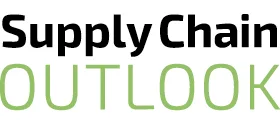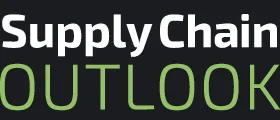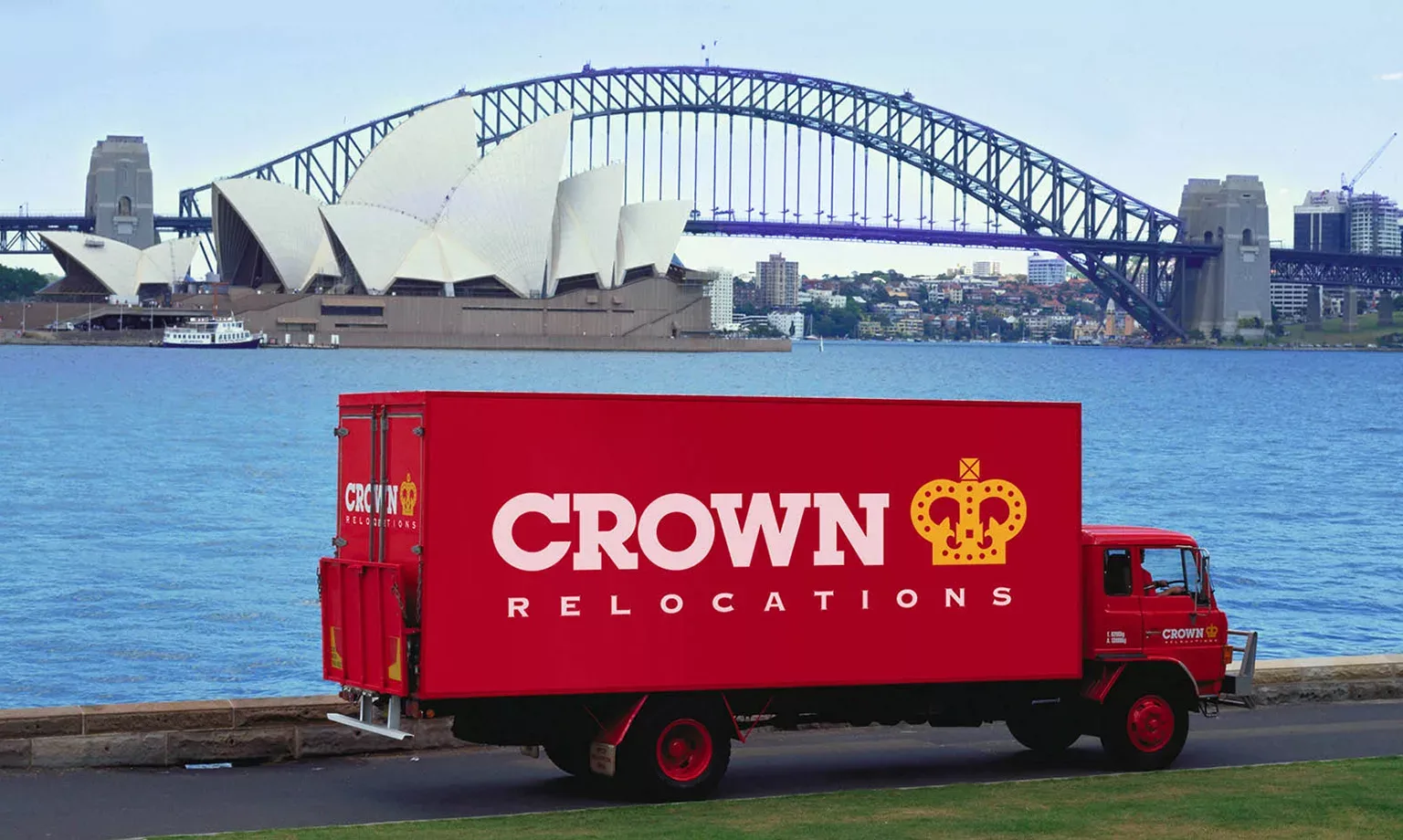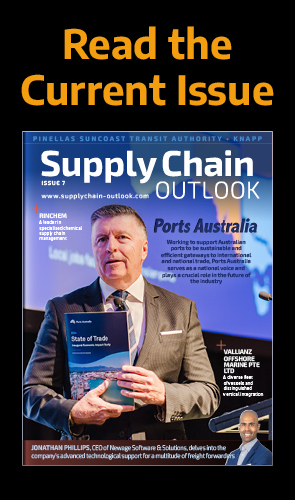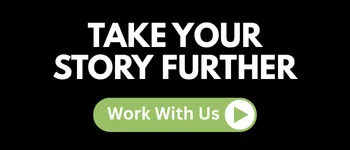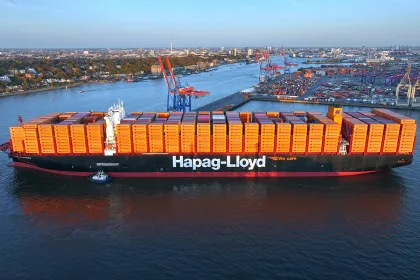Crown Worldwide makes it simpler to live, work, and do business anywhere in the world through its broad portfolio of complementary brands. We find out how the company is continuously looking to diversify and innovate with EMEA CEO, Barry Koolen.
JEWEL IN THE LOGISTICS CROWN
Established in 1965 in Japan, Crown Worldwide (Crown) has expanded into a global business encompassing six brands over the course of six decades.
Since Founder, Jim Thompson, first arranged a shipment from Japan to the US in 1965, Crown has adapted from its roots as a relocations business, building up its assets and diversifying its services to meet new and emerging needs as globalisation has accelerated.
With more than 250 facilities in over 40 countries, Crown is a specialist logistics business, offering everything from global and domestic relocations to records management, digitalisation services, workplace solutions, fine art handling, and more.
Since the 1960s, the company’s brands have developed into purposeful entities, each seeking to make it simpler to live, work, and do business anywhere in the world with a rich history of investing in people and giving back to communities.
Q&A WITH BARRY KOOLEN, EMEA CEO, CROWN WORLDWIDE
Can you tell us about the wide range of people and goods movement services that you provide?
Barry Koolen, EMEA CEO (BK): The early focus of the company was on providing exceptional moving services to expats and corporate clients in the Asia Pacific region, a venture that would grow into a global force in the logistics industry.
Establishing a presence in key markets worldwide allowed the business to diversify its offering to encompass a wide range of services, leveraging an asset base that has enabled us to respond to the ever-changing needs of customers in a world that is becoming more complex.
This includes a corporate relocation division, solving all the challenges of organisations with global, mobile workforces moving people to achieve growth in new markets.
Crown Records Management provides solutions for document scanning, paper shredding, records storage, digital information, and document management, whilst Crown Workspaces provides a tailored and sustainable approach to workplace change projects such as company moves and relocations, business removals, IT relocations, and interiors.
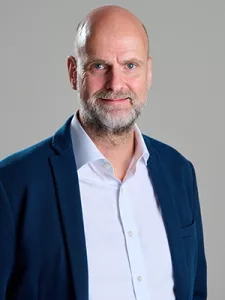
What about the other bespoke logistics services that Crown provides?
BK: As customer needs and expectations have evolved, Crown knew it had to adapt and diversify its offerings to meet their changing needs.
The company introduced several bespoke services into its offering, such as Crown Wine Cellars, a wine storage facility and private members’ club in Asia, acknowledged as one of the finest in the industry.
With our heritage business being a specialist logistics company that relocated families, it made sense to diversify using our asset base to provide simple solutions as the world has globalised.
Crown Fine Art transports some of the most valuable pieces of art around the world, ensuring safe handling for galleries, auction houses, private collectors, and museums – this is a growing business for us, with a successful footprint in the UK, Italy, and the Middle East, expanding into several high-growth markets in Asia.
Dedicated to the needs of high-end brands in fashion, cosmetics, and health products, Crown Logistics also offers a complete outsource supply chain management service in the Asia region.
How does Crown make it simpler to live, work, and do business anywhere in the world through its broad portfolio of complementary brands?
BK: We live in a world characterised by complexity: macroeconomic volatility, geopolitical uncertainty, ever-changing legislation, technological disruption, new ways of working – the list is endless.
That’s why Crown is purpose-led to make it simpler to live, work, and do business anywhere in the world.
This translates into helping our clients overcome the hurdles of digitalising to become more efficient through our Crown Records Management brand.
It means the Crown World Mobility team working with individuals and businesses to relocate, settle, and upskill employees on assignment and overcome barriers around immigration, housing, transport, and cultural integration.
It’s also about our Crown Fine Art experts ensuring precious art is moved from A to B safely and securely, and helping clients adapt to the evolving landscape of work, reinvent their workplaces, and achieve their sustainability targets through relocation, refurbishment, or storage with Crown Workspace.
Everything we do for our clients involves conquering complications brought about by red tape, logistics, or change to make doing business or relocating a whole lot easier.
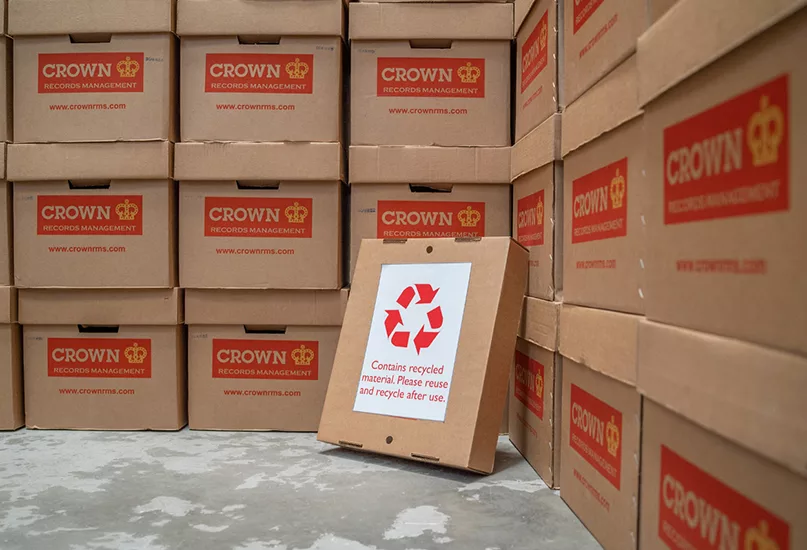
How is Crown continually looking to diversify and innovate in keeping with its dynamic history?
BK: As Singapore becomes an increasingly important business hub, our Crown Workspace team is investing to ensure companies there can capitalise on growth opportunities through workplace modernisation.
We recently acquired i.Dezign, an interior architecture design studio that works strategically to create innovative, green, smart offices.
To help these forward-thinking organisations reduce their carbon footprint, we have launched Office Resale, a Crown Workspace stream which breathes new life into unwanted furniture.
In EMEA, we have launched Circulate, helping big organisations to put circular economy principles at the heart of the workplace.
In that vein, sustainability remains a central strategic priority for us at a group level. We are taking an approach driven by data, investment, and education to ensure that the initiatives we invest in are backed by data and executed by a knowledgeable team that understands climate change.
The result is the delivery of meaningful, positive impact. Across the world, we are investing in technology to reduce carbon emissions and increase energy efficiency across our large property portfolio, incorporating electric vehicles (EVs) and seeking to reduce waste while continuing to give back to communities and take a people-centric approach to the care and development of our diverse team.
In the coming months, we hope to set a global net zero target – complementing local targets that have already been set – which will trigger further investment.
We continue to prioritise investment in people to deliver quality expertise and service across our brands, both through hiring and onboarding talent in the areas of digital transformation, art handling, and workplace consultancy, as well as the ongoing development and training of existing staff to ensure they’re ready to innovate and face up to new challenges.
We are also continuing to invest in commercial property and currently own a property portfolio worth over USD$1.2billion. This is significant, as is our ongoing strategic investment in property, because it demonstrates our long-term commitment to the markets we serve while strengthening the overall financial health of the company.

What insights can you provide about the widespread shift to digitalisation and how workflows and ways of working have evolved in Asia Pacific over the years?
BK: The records of an organisation, in many cases, are mission critical, but what is surprising is that even in 2024 – where digital transformation is advancing rapidly – a large portion of these records are still kept in paper form.
In fact, research from Adobe found that in Asia Pacific, only 12 percent of organisations have adopted fully digitised document workflows.
The reluctance to go digital has, in part, come from organisations themselves. Some leaders, particularly in small or medium-sized enterprises (SMEs) where budgets and resources are under more strain, struggle to justify the cost of investing in digital transformation. Others simply fear parting ways with their traditional paper-based legacy systems for records management.
Legislation in some parts of Asia Pacific is also a key barrier. In Hong Kong, for example, all businesses are required to keep a minimum of seven years’ worth of records that prove key financials, such as income, expenditure, and profit. While some digital records are accepted by authorities, the source document is legally required to be kept in its original print format too, either as paper or on CD/DVD.
Despite physical records being a legal necessity for some businesses in order to avoid fines and penalties, they pose a serious risk to business continuity in the event of a weather crisis. It’s clear that a movement away from physical records is becoming imperative for organisations, particularly in Asia Pacific, where the risk of damage is significantly higher.
For some, this shift might only be partial, with a hybrid model of both paper and digital records still needed in sectors such as legal and government, but it’s an inevitable shift in the way we work which offers so much potential for efficiency and productivity gains as well as business continuity.
More broadly, across Crown’s entire client base, we are collaborating on and encouraging digitalisation. People now want information and reports in real-time and on a self-serve basis, so we are developing those capabilities. This includes the development of client portals to help track shipments and manage assignments and assets.

Looking ahead, what are your key priorities for the rest of 2024 and beyond?
BK: The global business community continues to face the scourge of stubbornly high interest rates, which are stifling investment. Freight costs also remain high as shipping continues to navigate difficulties posed by conflict in the Middle East, and a year of elections is bringing uncertainty around policy and where and when to invest.
We are therefore focused on working with clients to demonstrate the return on investment that initiatives like digitisation can bring through productivity and efficiency gains.
Recent developments are paving the way for businesses to adopt more secure, paperless record management systems. The introduction of the Personal Information Protection Law (PIPL) in China, for example, has outlined what the digital processing and storage of sensitive personal data should look like for businesses – much like the General Data Protection Regulation (GDPR) already has in the EU.
The advent of hybrid working is also exposing hesitant business leaders to the benefits of digital record management systems. Employees today need easy, secure access to business records, no matter where they are based.
We are also focused on highlighting the benefits of relocation for corporates as they seek to retain staff in a competitive hiring environment. As interest rates start to come down and elections bring an end to political uncertainty, investment should increase and there is a prospect for a new dawn when it comes to global talent mobility.
This, too, comes with a need to continue the workplace evolution to suit hybrid working models that ensure greater collaboration between staff while supporting retention and talent acquisition. These are all huge opportunities for businesses to grow and become more efficient, and we are well-placed to support in these areas.
I have already remarked on the importance of sustainability and how it is a key priority for Crown, while taking a people-centric approach with our team is also important. As we continue to live through uncertainty and conflict in the world, we recognise it is vital that we stand by our most important asset – our diverse team of people.
Like all good global companies, we also want to continue to grow and collaborate with clients and partners on new ventures that deliver mutual benefits and capitalise on the opportunities I’ve set out, whether that’s through digitalisation, storage and asset management, or better logistics.
As complexity increases, we’re ready – as we always have been – to forge new paths and leverage our property asset base and team of global experts to help deliver prosperity in a changing world.
